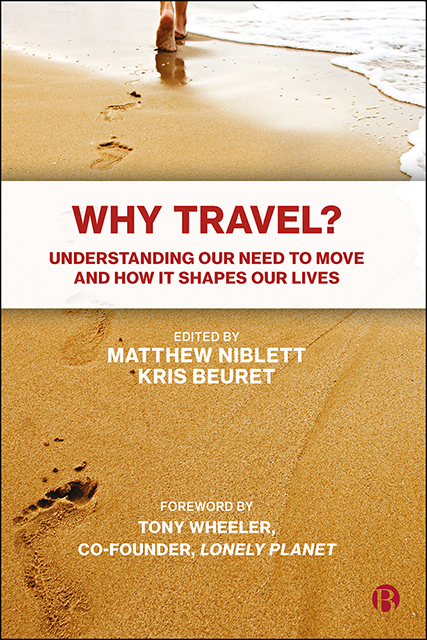Book contents
5 - The Economics of Travel: It’s Not the Destination, It’s the Journey
Published online by Cambridge University Press: 21 April 2023
Summary
Taking the train out of town for a weekend away can be such a pleasure. In this case I am taking my children to see my sister and her family in Leeds: a well-rehearsed event. The journey that has become a ritual. There are encounters with some familiar characters along the way. The commuter, on her way home, limbering up to get off at the next stop; it cannot come quickly enough. Then there are two men, both in suits. No doubt they have been in meetings in the city all day. From the look on their faces, and the liquid lunch stacked on the table from the buffet car, it looks like it was all worth it. Another deal closed. And, through the whining of the train's electric motors, it is possible to pick out the sound of another young family, squabbling over crisps and sweets. I wonder if they are making a similar pilgrimage to ours? Friends or relatives at the opposite end of the country.
In the seat across and opposite, a man in his 20s is staring out of the window, wearing a rugby shirt. This weekend the international game is on. He does his best to shut out the noise from the youngsters. Someone else has the same idea. She has hidden herself away in one of those unlucky seats where you cannot quite see out of the window, where she is staring into her phone. Everyone is on their way to or back from somewhere. This what economists refer to somewhat dryly as a ‘derived demand’; our act of travelling is borne from a desire to be somewhere purposeful at the end of the journey. It begs the question as to who would travel for its own sake? Surely any rational human being would only travel to get to work, to meet suppliers and clients, to visit loved ones, to attend sports fixtures, or to access some other essential, valuable or enjoyable activity?
Well up to a point. This is partly why the study of economics is important for understanding travel behaviour and motivations, why economics has come to play a significant role in informing decisions about transport investments, and why successive UK governments have claimed – at least until recently – to have had economic growth at the heart of their transport policies.
- Type
- Chapter
- Information
- Why Travel?Understanding Our Need to Move and How It Shapes Our Lives, pp. 77 - 96Publisher: Bristol University PressPrint publication year: 2021

